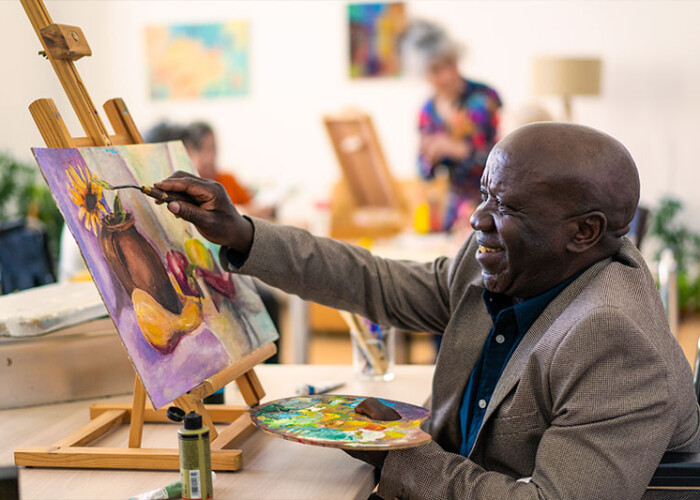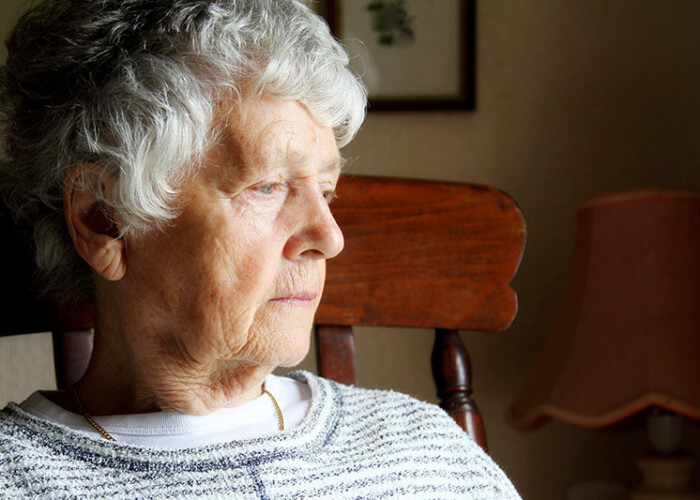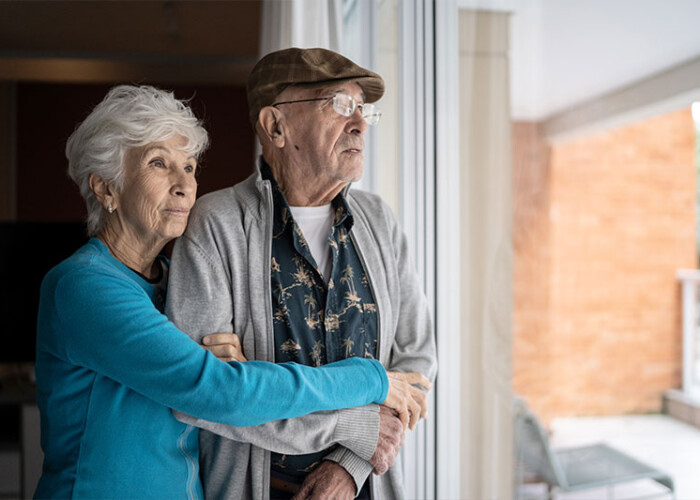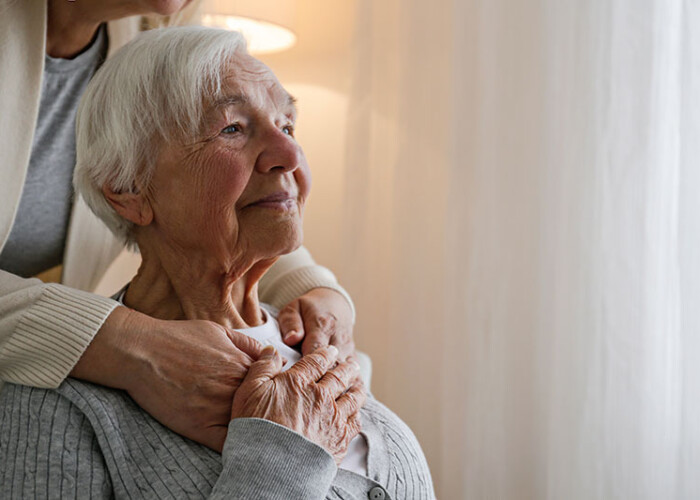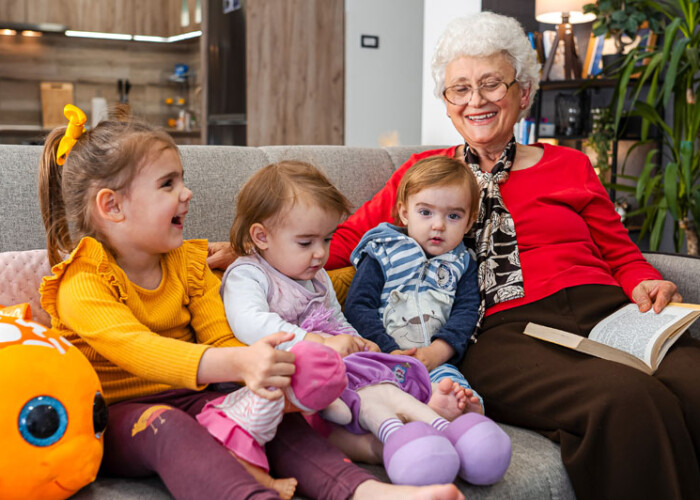Senior Loneliness
This Tactic to Improve Emotional Health in Seniors May Surprise You!
Try this one effective strategy to boost emotional health in seniors and see the difference it can make!
When caring for an older adult, it’s natural to focus on physical health: blood pressure, medications, diet, and mobility. But what about the unseen risks? Emotional health in seniors plays just as critical a role in overall well-being. Loneliness, stress, and depression can all silently chip away at health, making recovery slower and daily life more difficult.
Is It Anxiety, Depression, or PTSD in a Senior Loved One? Here’s How to Tell.
It’s important to recognize the signs of PTSD in a senior loved one and know where to turn for help.
A sudden crack of fireworks booms overhead, and the person next to you stiffens. A song drifts through the room, and you notice a shift in their expression. For someone who has lived through trauma, everyday sights, sounds, and smells can be powerful reminders of painful experiences. What might appear to be nerves, stress, or even age-related changes can actually be something much more complex: PTSD in a senior loved one.
10 Unique Birthday Party Ideas for Seniors That Everyone Will Love
Try one of these memorable birthday party ideas for seniors.
Celebrating a birthday is always special, but when it’s for someone who has lived through decades of stories, milestones, and cherished experiences, it becomes even more meaningful. Coming up with unique birthday party ideas for seniors isn’t always easy, however. How do you plan a celebration that will be remembered long after the candles are blown out? It starts with centering the party around the guest of honor. Ask yourself:
Brush Up on the Benefits of Art for Seniors
From painting to poetry, the benefits of art for seniors include memory support, emotional healing, self-confidence, and more.
It might start with a paintbrush, a lump of clay, or a blank sheet of paper. But what happens next can be truly transformative. For older adults, engaging in creative expression is good for the brain, the heart, and the soul.
Why Boredom in Dementia Is a Bigger Deal Than You Think and How to Beat It
Boredom in dementia can lead to agitation and anxiety, but the right activities spark joy and connection.
Some pairings just make sense: mac and cheese, peanut butter and jelly, cozy socks and chilly mornings. But boredom in dementia? That’s a combination no one wants. The effects can go far beyond a quiet moment of restlessness. Studies show that a lack of meaningful stimulation can lead to increased hallucinations, agitation, wandering, anxiety, depression, and even delirium. And it’s not just the person with dementia who suffers; boredom can also affect you as the caregiver, increasing the risk of burnout, sadness, and emotional fatigue.
The good news? Boredom isn’t inevitable. It’s preventable. And often, it takes just a few creative adjustments to turn a long, difficult day into one filled with connection and calm.
The Root of Restlessness
When someone … Read More »
When Love Feels Heavy: How to Cope With Spousal Caregiver Resentment
Spousal caregiver resentment can leave you riddled with guilt, but you can overcome it with the right support.
You meant every word of those vows: through sickness and health, for better or worse. But no one warned you how exhausting it might feel to live those promises day in and day out as a caregiver. If you’re feeling overwhelmed, frustrated, or even resentful while caring for your spouse, take a deep breath: you’re not failing, you’re just human.
What Is Senior Social Frailty and Who Is at Risk?
It’s easy for older adults to slip into spending too much time alone, which can lead to senior social frailty.
Not so long ago, we were all taking precautions to protect ourselves and loved ones from the spread of COVID-19. For older adults, who were especially vulnerable, this meant isolating at home and avoiding social interactions. While these measures were necessary for safety, they created a new norm of solitary living for many seniors—one that has persisted long after the height of the pandemic and is causing a condition known as senior social frailty.
Recognizing and Resolving Senior Anxiety
If you suspect senior anxiety in someone you love, help is available.
Does an older adult you care about seem more withdrawn, restless, or forgetful than usual? While these changes may appear to be part of aging, they might actually indicate something deeper: senior anxiety.
Anxiety is more than just occasional worry or stress. In older adults, it can manifest in subtle or unexpected ways, including:
Persistent, obsessive thoughts
Recurrent nightmares that disrupt sleep
Repetitive behaviors, like checking and re-checking that appliances are off
Physical symptoms, such as sweating, dizziness, or a racing heart
Overreactions to otherwise manageable stressors
What Contributes to Anxiety in Aging Adults?
Aging brings unique challenges that may contribute to anxiety, including:
Side effects from medications
Chronic illnesses or reduced mobility
Grieving the loss of a loved one
Concerns about declining independence or financial stability
Unresolved childhood trauma
These factors, combined with changes in … Read More »
How to Be There for a Senior During a Temporary Assisted Living Stay
A temporary assisted living stay can be less overwhelming and more comfortable with these tips.
After a hospitalization or surgical procedure, the doctor may recommend a temporary assisted living stay before the person returns home. This is typically a short-term time of intensive therapy to promote healing and recovery. However, the thought of moving into a nursing home or assisted living facility even for a matter of weeks or months can be extremely difficult to accept.
The Life-Changing Benefits of Purposeful Living for Seniors
Purposeful living for seniors opens new doors to health, happiness, and fulfillment each day.
What exactly is it that gets you out of bed every day? If you’re part of the sandwich generation, providing care for both older and younger loved ones, your list is probably quite extensive! As the nest empties, however, it becomes important to redefine our identity and learn new ways to bring meaning to every day.






